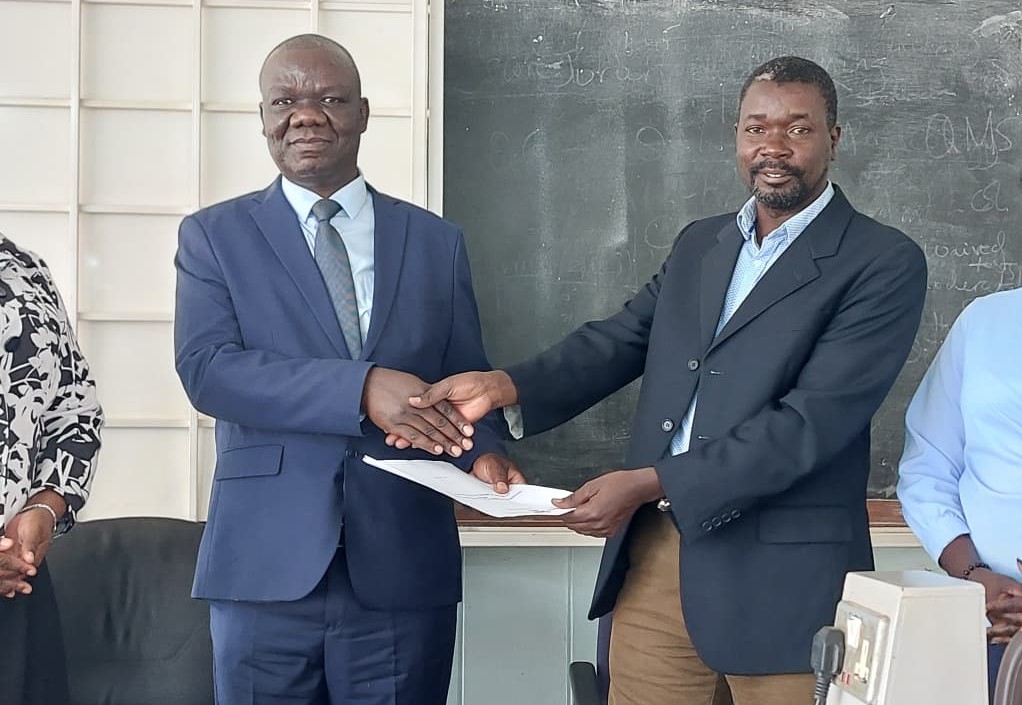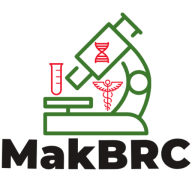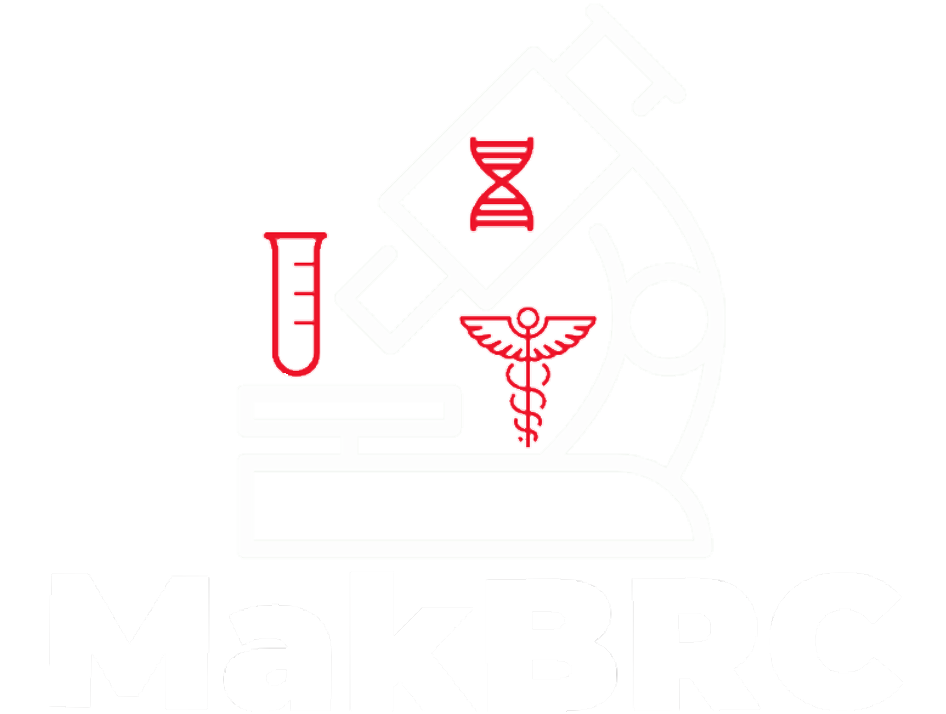Professor David Patrick Kateete officially hands over to Dr. Bwanga.

Professor David Patrick Kateete has officially handed over the responsibilities of Head Department of Immunology and Molecular Biology to Dr. Bwanga.
The Department of Immunology and Molecular Biology was established by the Makerere University Council in 2016 with the vision of becoming a leading hub for research and training in immunology, molecular biology, genomics, and bioinformatics. The department’s goals include establishing, strengthening, and promoting these biomedical disciplines through impactful research, training, and community outreach. It aims to produce well-trained and competitive graduates at the Master’s, PhD, and Postdoctoral levels, contributing to the generation of new knowledge and innovations. Additionally, the department supports the College of Health Sciences and School of Biomedical Sciences with high-quality research and community services, intends to establish a unit for clinical genetics/genomics and precision medicine. The department maintains cordial relations with the Department of Medical Microbiology.
During Professor Kateete’s tenure, Master’s training in Immunology and Clinical Microbiology continued, and several graduate programs were developed, for example Master’s in Bioinformatics and PhD in Bioinformatics. He was also working on a proposal for a Master’s in Clinical Genomics. The department currently has 200 graduate students, and the school registrar has provided updated records on the exact number of registered students in each program. Dr. Bagaya Bernard and Ms. Angella Okiror were responsible for tracking the progress of graduate students during their research years and have the most current status for each (Masters and PhD).
The department offers several undergraduate and graduate courses. Cross-cutting undergraduate courses available to students from various programs include IMBI 302: Fundamental Genetics & Molecular Biology, IMB 1322: Fundamental Immunology, and a Molecular Biology option for Biomedical Science and Cytotechnology students. Additionally, laboratory rotations/attachments are part of the industrial training. Graduate courses offered mainly to SHO students enrolled in MMed programs include Cell and Molecular Biology and Molecular Diagnostics.
The department is equipped with four well-functioning laboratories/units: the Immunology Laboratory (accredited), the Molecular Diagnostics Laboratory (with Genomics facility, accredited), the Molecular Biology Laboratory (accredited), and the Biobank/Biorepository (on accreditation this year). Each laboratory supports training, research, and community outreach activities. Many of the state-of-the-art equipment in these labs and the biobank were acquired through research grants and donor support.
The office of the Head of Department was established through the efforts of EDCTP (the
Late Dr. Alphonse Okwera as the lead PI) and NIH-supported grants( Prof. Moses Joloba as the lead PI), which renovated and remodeled the former rooftop of the pathology/microbiology building into a functional floor. The office is equipped with five chairs, modern tables with drawers, and air conditioning (AC). The Center of Excellence in Bioinformatics & Data Intensive Sciences (ACE) at IDI is also part of the facilities available to the department, contributing to its research and training of bioinfomaticians.
Despite the department’s successes, the department has faced challenges, particularly with staffing shortages for technicians, administrators, secretaries, and messengers. Professor Kateete acknowledged the support from the Makerere Biomedical Research Center (MakBRC), which has addressed some of these issues and significantly contributed to the welfare of support staff, who also assist in teaching and training. In conclusion, Professor Kateete expressed his gratitude for the opportunity to serve as Head of the Department of Immunology and Molecular Biology. He thanked everyone who supported him during his tenure and expressed confidence that under Dr. Bwanga’s leadership, the department will continue to excel in its research and academic endeavors. He is available for any further information or clarification needed during this transition period.
By Dafara Kezimbira

